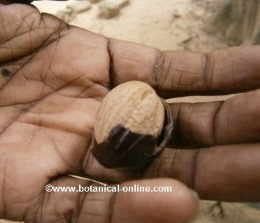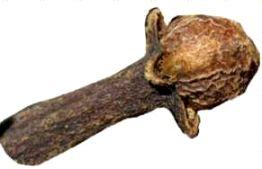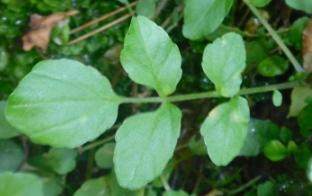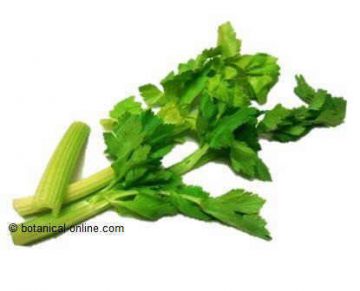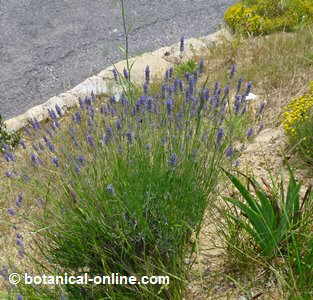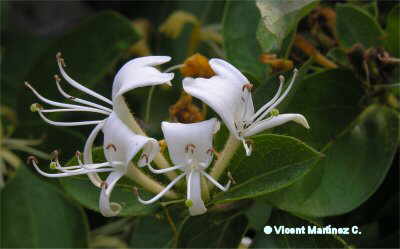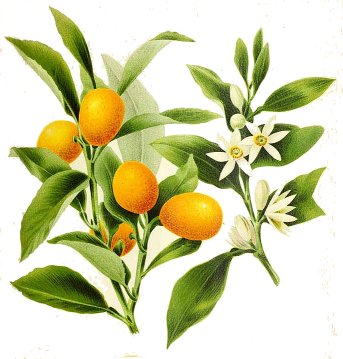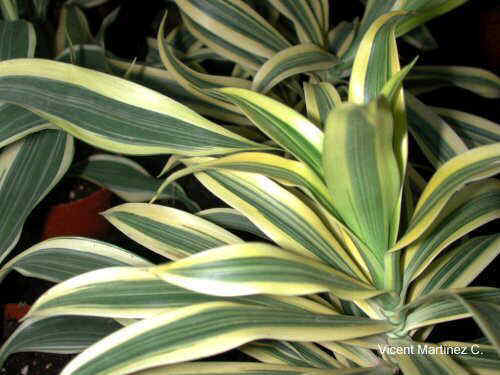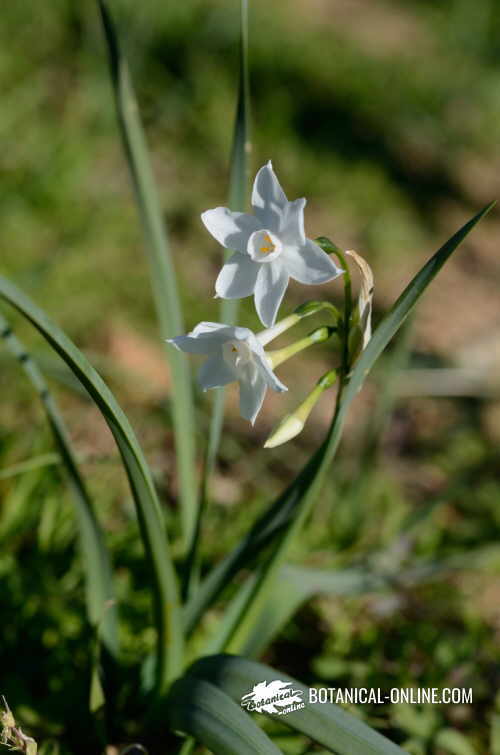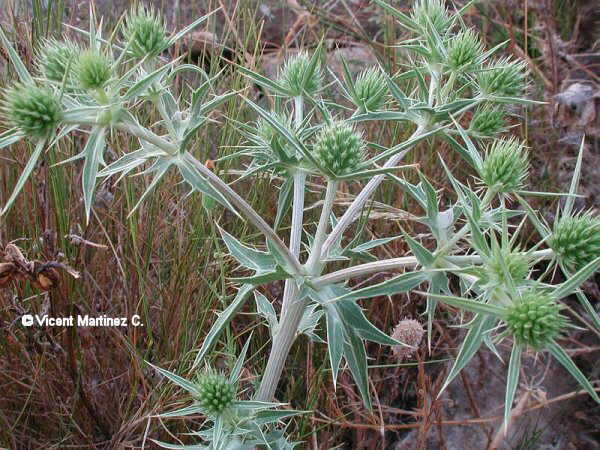Contents
- 1 Herbal treatment for bronchitis
- 1.1 Phytotherapy. Medicinal plants preparations for bronchitis
- 1.2 Main emollient plants to treat bronchitis
- 1.3 Main expectorant plants for bronchitis
- 1.4 Other expectorant plants that can be used in case of bronchitis
- 1.5 Main bechic plants to cure bronchitis
- 1.6 External use preparations to treat bronchitis
Herbal treatment for bronchitis
Phytotherapy. Medicinal plants preparations for bronchitis
The primary role of phytotherapy in the treatment of bronchitis is to use those plants with the following purposes:
– Emollient plants : able to soften phlegms
– Expectorant plants for the expulsion of secretions
– Anti inflammatory plants, able to reduce bronchi inflammation.
– Bechic plants: for soothing cough
– Analgesic plants, which will reduce pain
Main emollient plants to treat bronchitis
- Mallow (Malva sylvestris) with emollient properties (10-minute infusion of two teaspoons of dried leaves per cup of water. To increase its value may be taken with honey.)
- Marshmallow (Althaea officinalis) (Marinate for 24 hours 100 g of dried roots in a liter of water. Filter, boil the water and add half kilo of sugar stirring well until dissolved. Drink half a small cup of this syrup before bedtime)
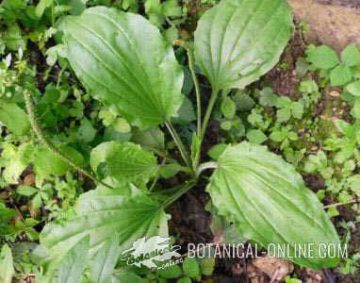
- Plantain (Plantago major) Because of its content in mucilages, it performs emollient properties, that’s to say it soothes the respiratory mucous membrane. (mash the plant, filter the liquid. Mix it with sugar in the same proportion, diluting it previously by putting the pot in hot water. Take three spoonfuls a day. The bactericide properties of this plant are spoiled by heating it, so it is better to prepare a cold infusion to treat bacterial infections. (As emollient, an infusion of a teaspoon of dry leaves for a cup of water can be made. Take three cups a day)
- Hibiscus (Hibiscus sp.) (Warm steam of hibiscus that is made by adding a few drops of extract of hibiscus in the bath water)
- Oats (Avena sativa) (Decoction of 4 tablespoons of seeds in two quarts of water until the water evaporates halfway. Drink a couple of glasses a day divided into several doses)
Main expectorant plants for bronchitis
- Eucalyptus (Eucalyptus globulus) (Decoction of 60 g. Of leaves per liter of water. Aspirate vapors covering her head with a cloth) (Infusion of a little over half tablespoon of dried leaves per cup of water. Take 3 cups day)
- Linden (Tilia x europaea, Tilia platyphyllos, Tilia cordata): The flowers of the linden have diaphoretic properties, that’s to say they are able to increase the body sweat. The increase of body heat can help to promote the treatment of pharyngitis and other diseases respiratory status (Infusion of a half teaspoon of dried flowers per cup of water. Take a couple of cups a day.)
- Pennyroyal (Mentha pulegium) (infusion of 2 tablespoons of dried leaves or 4 tablespoons of fresh leaves per liter of water. 2 cups a day)
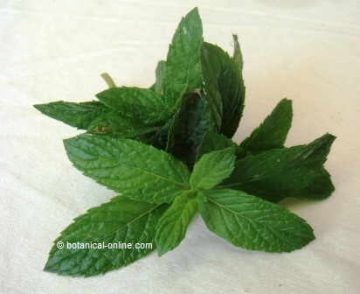
- Mint / Peppermint (Mentha spp. Mentha x piperita) (10-minute infusion of a spoonful of the dried plant. Drink a couple of glasses a day)
- Lime (Citrus aurantifolia) (Infusion of a teaspoon of dried leaves or a piece of lime rind, 3 times a day. Combine with plants that relieve sore throat caused by coughing, such as plantain, mallow or marshmallow).
- Vervain (Verbena officinalis) (Infusion of a teaspoon of dried plant per cup of water for 10 minutes. Drink 2 or three cups a day)
- Kumquat: (Fortunella spp) Kumquats properties are suitable for treating bronchitis. It helps expel secretions, reduces pharyngitis and soothes irritated throat throat. The essential oils have muscle relaxants that can relieve chest and coughing (Take the whole fruit with skin. Infusion of a teaspoon of dried leaves in 1 cup of water, three times a day. Combine with expectorants such as eucalyptus or mint).
- Anise (Pimpinella anisum)The use of this plant helps to expel mucus and to reduce the inflammation. (Infusion of average teaspoon of dried fruitss by water cup. Take two or three cups per day after eating) (Take 1 ml from dye two or three times per day)

Photography of nutmeg seed, which is ground and used as a spice Nutmeg (Myristica fragrans) The essential oil of nutmeg is used in external use to treat respiratory abnormalities such as bronchitis, (Apply a compress on the breast with some drops of diluted essential oil)
Other expectorant plants that can be used in case of bronchitis
- Common violet (Viola odorata) (Three tablespoons of dried roots per liter of water for 20 minutes. Take 4 tablespoons a day.) (Decoction for a couple of minutes of 1 tablespoon of dried flowers per cup of water. 2 cups a day) (Decoction of 50 g dried root per liter of water for about 10 minutes. Take three cups a day, sweetened with honey)
- Cinnamon (Cinnamomum zeylanicum) The use of this plant help expel mucus and reduce inflammation. (Take 2 or 3 drops of essence of cinnamon dissolved in a glass of hot water sweetened with a teaspoon of honey three times a day. The essence can be found in pharmacies or herbalists. Take it according to the prescription leaflet)
- Clove (Eugenia caryophyllata) Clove is a good expectorant and anti-inflammatory, which can be used to reduce inflammation and expel bronchial mucus. (15-minute infusion of a spoonful of cloves per liter of water. (Drink three glasses a day)

Clove - Coltsfoot (Tussilago farfara) (Infusion of two teaspoons of leaves or dried flowers per cup. 2 cups a day, sweetened with honey)
- Horehound (Marrubium vulgare) (infusion of 20 g. of flowers per liter of water. Two cups a day)
- Juniper (Juniperus communis) Juniper has expectorant properties because of its wealth in terpenes and terpenoids. C It is also a good antiseptic and antispasmodic. This makes it suitable to remedy respiratory ailments like common cold, bronchitis, sinusitis or pharyngitis (One tablespoon of dried berries per liter of water for 15 minutes. Drink throughout the day, sweetened with honey)
- Cowslip (Primula veris) Ideal for the flu treatment, bronchitis and catarrh, with strong cough and mucus (Decoction of 40 g. of rhizome per liter of water. Drink 4 cups a day)
- Poligala (Poligala rupestris) (Infusion of a spoonful of the dried plant for half glass of water. Sweeten it and take several tablespoons a day)
- Watercress (Nasturtium officinale) Drink fresh plant juice (can be purchased at pharmacies or herbalists or obtained personally pounding it in a mortar and squeezing the crushed fresh plant with a piece of canvas. Filter it very well with a strainer . Take about 60 or 150 g daily, divided into several doses, diluted with water or cold broth of vegetables.) (Decoction of about 12 g of fresh plant per cup of water for about 10 minutes. Allow to cool and take a couple of glasses per day)

Watercress - Pellitory (Parietaria officinalis) (Half a teaspoon three times daily of the powder of dried leaves.)
- Violet (Viola odorata) (Three tablespoons of dried roots per liter of water for 20 minutes. Take 4 tablespoons a day.)
- Red clover (Trifolium pratense) (Infusion of a teaspoon of dried leaves per cup of water. A couple of cups a day.)
- Cypress (Cupressus sempervirens) Their use can reduce the inflammation caused by this disease as well as remove excess secretions. (Inhalation of hot water vapors in which it was dissolved about 8 drops of essential oil)
- Pine (Pinus sylvestris) (Infusion for 30 minutes three tablespoons of dried buds per liter of water. Take three cups a day with a little honey) (Inhaling steam from hot water in which we have dissolved a few drops of oil essence of pine needles available in pharmacies and health food stores)
- Poplar (Populus nigra) It helps calm cough, increases sputum production and reduces inflammation (Infusion of 5 tablespoons of dry buds per liter of water for 10 minutes. Drink two or three glasses a day) (take 40 drops of tincture three times day dissolved in water. The tincture can be purchased at pharmacies or herbalists or it can be made at home. To make the dye, mix in a glass bottle with two tablespoons of dried and broken buds with 5 tablespoons of pure alcohol and a half and four tablespoons half of distilled water. Let macerate for seven days. After one week, filter and place it in a glass container with dropper)
- Iceland moss (Cetraria islandica) (Decoction for 5 minutes of 10 g of shredded dried plant per liter of water. Throw the water and boil it again in fresh water for half an hour. Take a couple of cups a day)
- Sundew (Drosera spp.) Sundew plumbalgin has antibiotic properties against Haemophilus pertussis and can help fight this infection. It is used in the treatment of bronchitis, laryngitis and hoarseness. (Extract: 1 teaspoon every 2 hours)
Main bechic plants to cure bronchitis
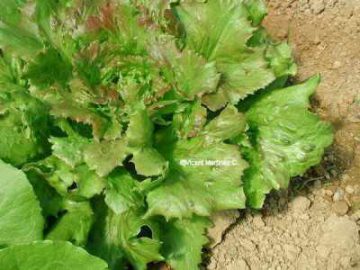
- Lettuce (Lactuca sativa) (Decoction of 100 g. of lettuce in 1 liter of water. Three cups a day)
- Bay (Laurus nobilis) Cineol, present in essential oil, plays an important role considering its antibacterial, antitussive and anti bronchitic properties. But, besides it, there are many other components working in the same sense, such as acetic acid, alpha-pinene and camphene. (Infusion of a pair of leaves in a cup of water for 10 minutes. 4 cups per day)
- Poppy (Papaver rhoeas) (Infusion of some petal fragments per cup of water. 2 cups a day.) (Decoction for 6 minutes of 2 capsules per glass of water. 6 tablespoons at bedtime)
- Mallow (Malva sylvestris) In the respiratory diseases: coughing, cold, sore throat, bronchitis, pain in the breast, etc. its properties soothe respiratory tracts. (gargles with the decoction of dry leaves and flowers- sore throat.) (Infusion for 10 minutes of two spoons of dry leaves for each glass – pain in the breast. To increase its emollient properties it can be taken with honey) (Infusion for 5 minutes of a tea spoon of flowers with two leaves of eucalyptus. Against coughing.) (Infusion for 5 minutes of a tablespoon of flowers with two leaves of eucalyptus.)
- Cabbage (Brassica oleracea) In order to alleviate bronchitis make a decoction of a cabbage leaf in glass of milk during 15 minutes. Distribute it throughout the meals of the day) the same decoction is useful in influenza, common cold… etc. (4 tablespoons daily of cabbage juice produced by pressing the plant)
- Celery (Apium graveolens) (Decoction of 30 g of dried root per liter of water. Take a couple of glasses a day.)

Celery - Chestnut (Castanea sativa) (Infusion of 4 or 5 tablespoons of dried leaves per liter of water. Take three glasses a day by ingesting some tablespoons now and then, away from meals)
- Wild teasel (Dipsacus fullonum) In respiratory diseases, cough, common cold, bronchitis, influenza, pain in the breast, etc. when it is recommended to increase transpiration, (Three cups a day with the infusion of 30 g. of root per liter of water. Pour water over the root and let it stand 15 minutes)
- Coltsfoot (Tussilago farfara) (A traditional treatment, not shared by most of specialists, has been smoking cigarettes made from the dried leaves)
- Mullein (Verbascum thapsus) (infusion of 15 g. of dried flowers per liter of water. Filter through a cloth strainer and drink 4 cups a day.)
- Lavender (Lavandula officinalis, Lavandula latifolia) (15-minute infusion of a spoonful of dried flowers per cup of water. Take it hot and sweetened with honey)

Lavender - Honeysuckle (Lonicera caprifolium) (Infusion of a spoonful of dried flowers per cup of water. Take a couple of cups a day, sweetened with honey)
- Common daisy (Bellis perennis) (Infusion of a spoonful of dried plant per cup of water. 3 cups per day)
- Sweet clover (Melilotus officinalis) (Infusion of a spoonful of dried flowers per cup. 2 cups per day)
External use preparations to treat bronchitis
- Mustard (Brassica nigra) Mustard poultice applied to the chest area to clear it
- Flax (Linum usitatissimum) (Poultice of linseed flour. 50 g. Of flour per cup of water. Place the dough on cloth and support it on the chest)
- Pepper (Piper nigrum) (A pepper poultice can be used as an expectorant in cases of bronchitis or pneumonia)
![]() More information on bronchitis.
More information on bronchitis.

